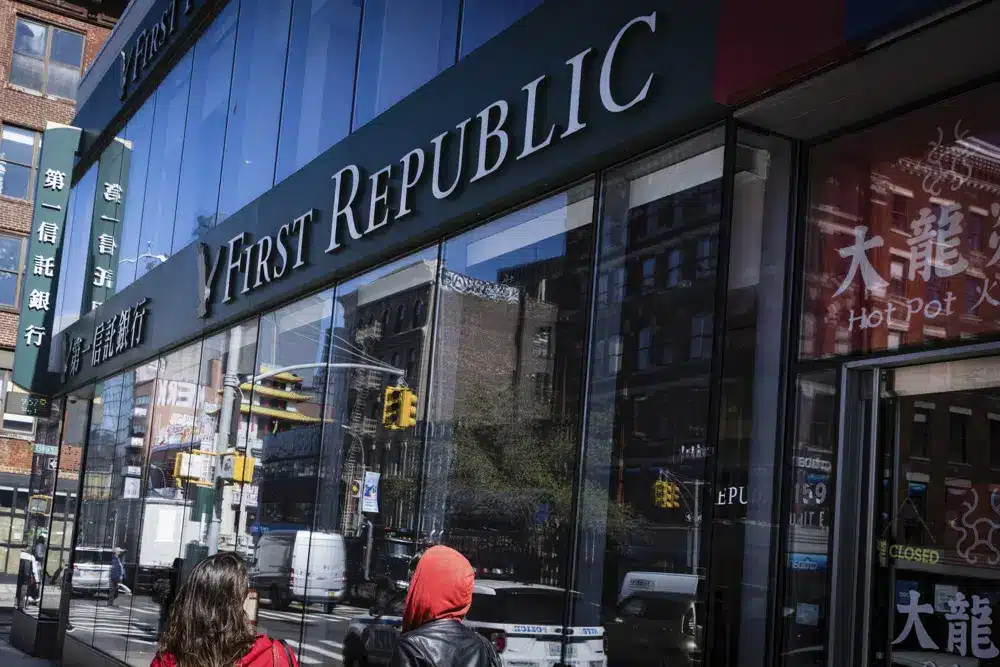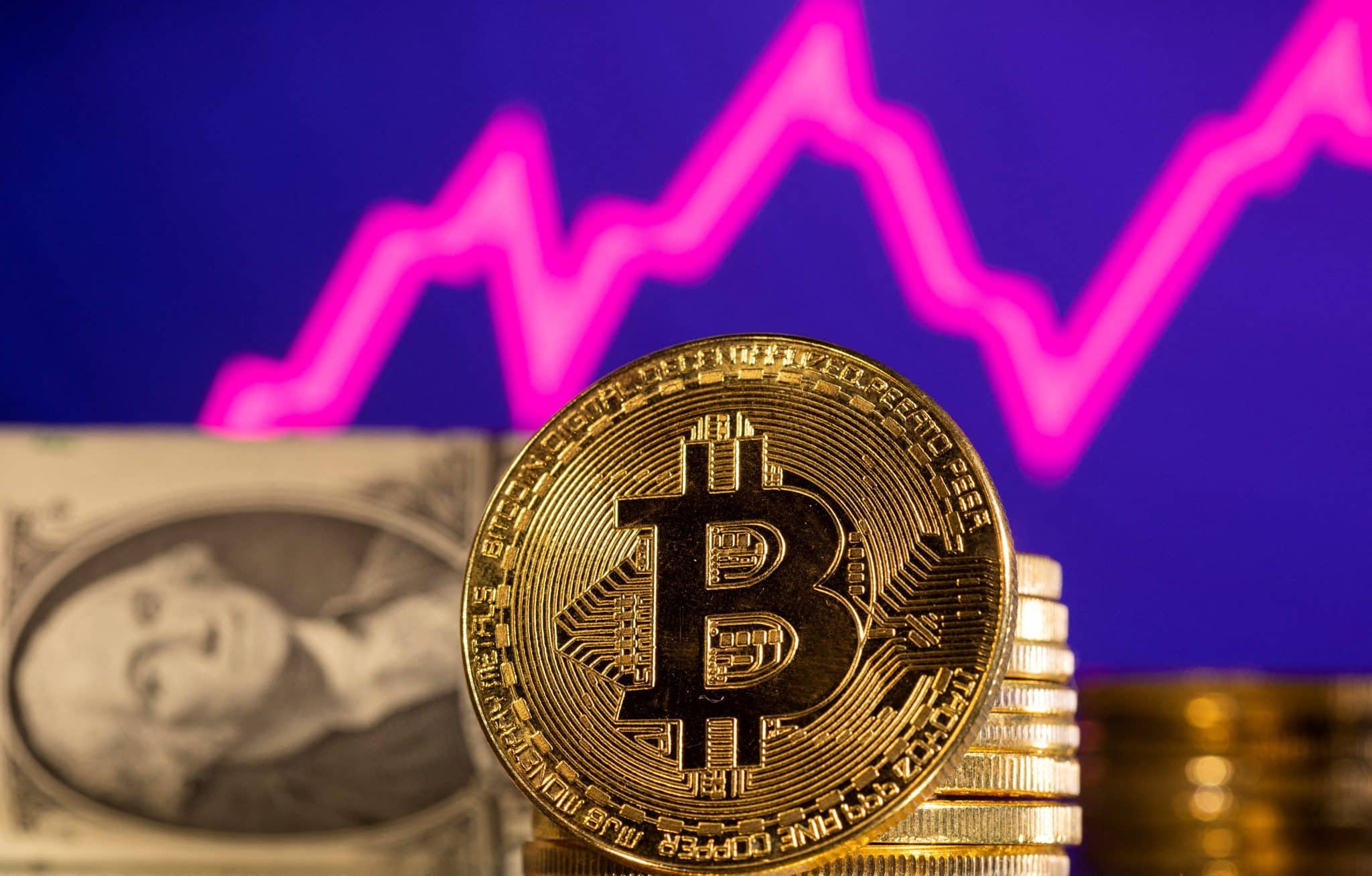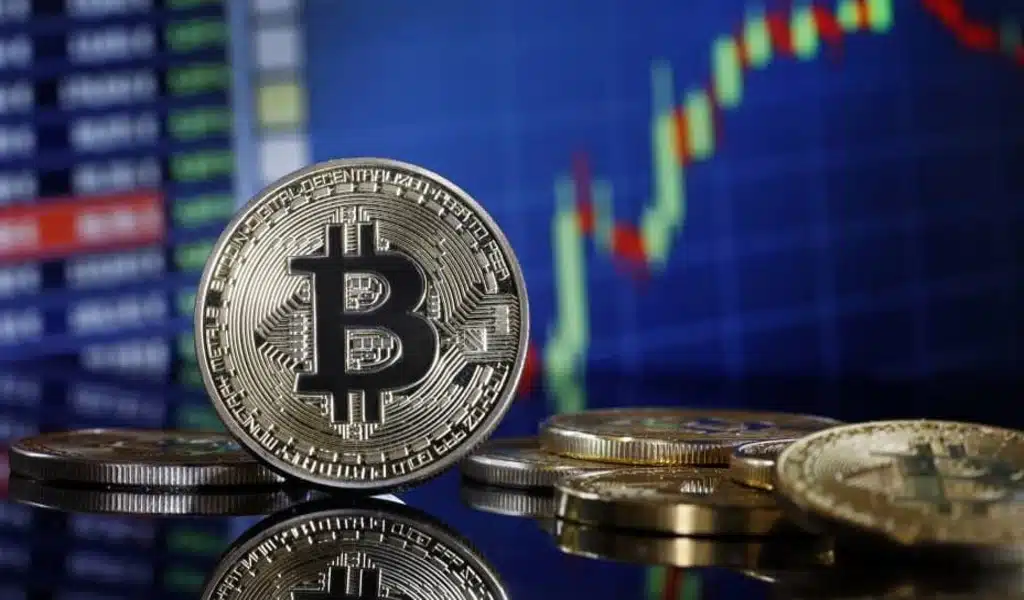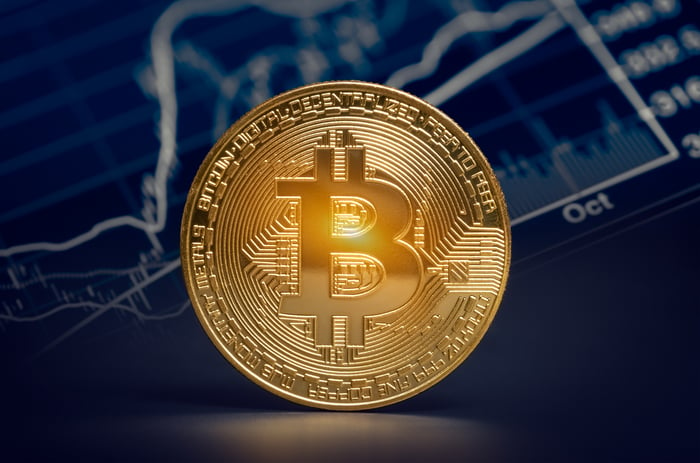Cryptocurrency
2023: First Republic Bank Seized, Sold In Fire Sale To JPMorgan

NEW YORK (Reuters) – Regulators seized insolvent First Republic Bank early Monday, making it the second-largest bank failure in US history, and immediately sold all of its deposits and most of its assets to JPMorgan Chase to resolve the upheaval that has raised concerns about the soundness of the US banking system.
It is the third midsize bank to go under in less than two months. The only larger bank failure in US history was Washington Mutual, which went bankrupt at the height of the 2008 financial crisis and was taken over by JPMorgan in a similar government-managed deal.
“Our government invited us and others to step up, and we did,” JPMorgan Chase Chairman and CEO Jamie Dimon said.
JPMorgan Chase took over First Republic’s 84 locations on Monday, acquiring the bank’s $92 billion in deposits and $203 billion in loans and other instruments. The bank’s stockholders are expected to be wiped out as part of the sale.
In a conference call with reporters and investors, Dimon stated that “this part of this (banking) crisis is over.” Other midsize banks reported their results last week, and the vast majority of them showed that deposits had stabilized and profits remained healthy. The First Republic was an outlier.
Before this year, First Republic was the banking industry’s envy. Its opulent branches provided warm cookies to its clients, who were nearly entirely wealthy and powerful. Its bankers enticed wealthy clients with low-cost mortgages and appealing savings rates to sell them on higher-profit ventures such as wealth management and brokerage accounts. In exchange, the wealthy rarely defaulted on their loans and deposited large sums of money in banks that could be borrowed elsewhere.
However, with Silicon Valley Bank’s and Signature Bank’s failures, that business model of catering to the wealthy became a liability. These banks had many uninsured deposits or deposits that exceeded the FDIC’s $250,000 limit. Clients with big accounts at First Republic, like those at Silicon Valley Bank and Signature Bank, quickly withdrew their funds at the first sign of problems.
In a note to investors, Timothy Coffey, an analyst with Janney Montgomery Scott, stated, “Too many (First Republic) customers demonstrated their true loyalties were to their fears.”
Last month, a group of a dozen banks put together a $30 billion funding package for the First Republic, which appeared to stop the bleeding of deposits for a time. However, it became clear that the First Republic needed more time: it needed to find a buyer or find new sources of funding to replace the deposits that had left the bank.
The First Republic intended to liquidate underperforming assets, such as low-interest mortgages supplied to rich clients. It also disclosed plans to lay off up to a quarter of its workers, estimated to be over 7,200 in late 2022. Analysts, though, saw it as too little, too late. For weeks, the bank appeared to be on the verge of failing.
According to Jeremy Barnum, JPMorgan’s chief financial officer, the $30 billion deal “bought time when time was needed” for the First Republic.
Last Monday, First Republic reported its first-quarter results, shocking analysts and investors by revealing that $100 billion in deposits had flowed out of the bank, most of which occurred in mid-March, immediately following the failures of Silicon Valley Bank and Signature Bank. During an earnings conference call, its executives took no questions from analysts. The stock of First Republic dropped by more than 50% the next day.
By the middle of last week, it was evident that the government needed to intervene in the First Republic. Treasury officials requested that banks submit bids for the First Republic, and bankers and regulators worked all weekend to find a solution.
JPMorgan is so large that it would be illegal to buy the First Republic.
JPMorgan Chase, the nation’s largest bank and a dealmaker in times of crisis, was once again the government’s go-to bank. Last month, Treasury officials appointed JPMorgan to head the $30 billion rescue package. Dimon was Washington’s go-to banker 2008 to find private solutions to the banking crisis, and JPMorgan acquired both Bear Stearns and Washington Mutual.
The Federal Reserve and FDIC, which, together with the Office of the Comptroller of the Currency, govern the banking industry, may face greater scrutiny for their management of First Republic. Both admitted in separate studies on Friday that inadequate supervision contributed to Silicon Valley Bank’s and Signature Bank’s failures.
“When interest rates were low, these banks were allowed to grow too big too fast,” Coffey explained in an interview.
There may now be concerns about JPMorgan Chase’s size, which has more than $3 trillion in assets and is by far the largest of the “too big to fail” firms worldwide.
Regulators “allowed the country’s largest bank to grow even larger.” “We expect this to be a Democratic focus for months,” said TD Cowen banking analyst Jaret Seiberg.
JPMorgan is so large that it would be illegal to buy the First Republic since no bank in the United States can have more than a 10% market share of deposits. JPMorgan was only able to step in because the First Republic failed.
JPMorgan described the First Republic transaction as favorable to the financial system and the company statement. As part of the arrangement, the FDIC will share losses on First Republic’s loans with JPMorgan. The FDIC estimates that First Republic’s failure will cost the insurance fund approximately $13 billion, which bank assessments rather than taxpayers pay.
JPMorgan anticipates First Republic to increase its net income by $500 million yearly, but it expects to incur $2 billion in costs integrating First Republic into its operations over the next 18 months.
SOURCE – (AP)
Cryptocurrency
Bitcoin Value Drops as Halving Date Nears

Bitcoin’s value has fallen dramatically recently. Compared to its most recent all-time high of $73,750, the present price of Bitcoin is under $65,000, a decline of more than 12%. Both investors and cryptocurrency aficionados have noticed this unexpected drop.
The price of Bitcoin hit a new low of about $60,090.43 in the last several days, its lowest level since February. Given this declining tendency, the reasons impacting the bitcoin market have been the subject of debate.
This fall in Bitcoin’s value is due to important variables, such as legislative developments, fluctuating investor mood, and volatile markets. For those working in the cryptocurrency industry, it is essential to have a firm grasp of these aspects to successfully traverse the current market conditions.
It is crucial to keep up with the newest trends and developments in Bitcoin pricing in order to make educated investing decisions in the ever-changing cryptocurrency market. If you want to know why Bitcoin’s value dropped recently and how the digital asset market works, read on.
Factors Behind the Bitcoin Value Drop
The recent decrease in Bitcoin’s value can be attributed to various factors that have impacted the cryptocurrency market. Let’s delve into two significant aspects contributing to the decline in Bitcoin prices.
Market Uncertainty:
The volatile nature of the cryptocurrency market often leads to uncertainty among investors, causing fluctuations in Bitcoin prices. When market conditions become unpredictable, investors may react by selling off their Bitcoin holdings to mitigate potential losses. This rush to sell can cascade, putting downward pressure on Bitcoin prices.
Market trends, such as sudden price drops or rapid increases in trading volume, can contribute to heightened uncertainty. Factors like global economic instability, regulatory changes, or even major geopolitical events can further blur the outlook for Bitcoin’s value, prompting investors to reassess their positions and opt for selling, thus influencing the price downturn.
Regulatory Developments:
Another significant factor influencing the recent Bitcoin value drop is regulatory news and changes within the cryptocurrency space. Authorities worldwide have been increasingly focusing on regulating digital assets like Bitcoin, which can impact investor sentiment and confidence in the market.
Recent announcements of stricter regulations, bans on cryptocurrency trading in certain regions, or crackdowns on unregistered exchanges have all instilled fear and uncertainty among investors. Such regulatory developments can lead to a sell-off as market participants anticipate potential hurdles in trading, compliance, or even the overall legality of holding Bitcoin.
By closely monitoring market uncertainty and regulatory developments, investors can better understand Bitcoin’s value dynamics and make informed decisions amid the evolving cryptocurrency landscape. Staying informed about these factors is crucial for navigating the volatile nature of the crypto market and adapting to changing conditions to protect investments in digital assets.
Impact of Bitcoin Halving on Price
Bitcoin halving, a fundamental event in the Bitcoin network, plays a crucial role in influencing its price dynamics. Understanding how Bitcoin halving affects supply and demand helps predict potential price fluctuations in the cryptocurrency market.
Bitcoin Halving Explanation
Bitcoin halving, also known as halving, occurs approximately every four years and reduces miners’ rewards for verifying transactions by half. This process is coded into the Bitcoin protocol to limit the supply of new Bitcoins entering circulation. As a result, Bitcoin becomes scarcer over time, impacting its perceived value.
Historical Price Trends After Halving
Analyzing past Bitcoin halving events provides valuable insights into how the cryptocurrency’s price has reacted in the aftermath. Historically, Bitcoin prices have shown bullish trends post-halving, with significant price increases observed in the months following the event. This pattern is attributed to the reduced supply of new Bitcoins and increased investor demand.
By examining historical data and observing how Bitcoin’s price has behaved after previous halving events, investors and analysts can better understand potential price movements in the future. Market participants closely monitor the impact of Bitcoin’s halving on price to make informed decisions regarding their cryptocurrency investments.
Overall, Bitcoin’s halving serves as a pivotal moment that impacts Bitcoin’s supply-demand dynamics, ultimately influencing its market value and price fluctuations.
Bitcoin Price in USD and Recent Trend
Since the recent ups and downs in the cryptocurrency market have sparked curiosity among investors, let’s delve into the current state of Bitcoin’s value.
Current Bitcoin Price:
As of the latest data available, Bitcoin’s price in USD stands at approximately $61,244.38 per unit. Comparing this to recent highs, where Bitcoin surged above $64,000 and lows around $30,000, we can see the notable volatility that Bitcoin has experienced in the past weeks.
Price Fluctuations Analysis:
Various factors, including market demand, regulatory developments, and macroeconomic trends, have influenced the recent Bitcoin price fluctuations. The surge and retreat of Bitcoin value can be attributed to factors such as market speculation, news around Bitcoin halving events, and the overall sentiment towards the cryptocurrency market. These rapid price shifts showcase the cryptocurrency market’s unpredictable nature and the need for investors to stay updated on Bitcoin trends.
Analyzing the current Bitcoin price trend reveals a dynamic landscape where prices can shift rapidly based on market forces. Understanding the nuances of Bitcoin price fluctuations is pivotal for investors to make informed decisions about their holdings and successfully navigate the evolving cryptocurrency market landscape.
By staying informed about the latest Bitcoin to USD conversion rates and monitoring market indicators, investors can better position themselves in this fast-paced and ever-changing realm of digital currency trading. Bitcoin’s resilience and potential to act as a hedge against traditional financial assets make it a game-changer in the financial world, emphasizing the need for a strategic approach to effectively leverage its benefits.
The Role of Bitcoin Wallets in Value Fluctuations
The value of Bitcoin can experience significant fluctuations, influenced by various factors such as market demand, investor sentiment, and the role of Bitcoin wallets. Understanding how Bitcoin wallets affect price movements is essential for cryptocurrency enthusiasts.
Wallet Exchanges and Price Movement
Bitcoin transactions through wallets and exchanges play a crucial role in determining the price of Bitcoin. The volume of transactions on these platforms can impact supply and demand dynamics, affecting the overall market sentiment. Large buy or sell orders on exchanges can lead to price spikes or drops, creating volatility in the Bitcoin market. During times of high trading activity, the price of Bitcoin can experience rapid fluctuations, highlighting the interconnectedness between wallet usage and price movements.
Safety Measures in Wallet Usage
As Bitcoin’s value fluctuates, users must prioritize security measures to safeguard their investments held in Bitcoin wallets. Implementing robust security practices, such as using hardware wallets or two-factor authentication, can help protect funds from potential breaches or cyber-attacks during price drops. It is advisable for users to regularly update their wallet software, use strong passwords, and enable additional security features provided by wallet providers. By taking proactive steps to secure their Bitcoin holdings, users can mitigate price volatility risks and ensure their digital assets’ safety.
In conclusion, the role of Bitcoin wallets in value fluctuations underscores the need for users to understand the interconnected nature of wallet exchanges and price movements. By adopting proper safety measures and staying informed about market trends, cryptocurrency investors can confidently navigate through price fluctuations and protect their Bitcoin investments effectively.
Conclusion
Finally, investors are worried about Bitcoin’s future due to its recent decline in value, around $60,000. Reasons for the drop include market corrections, lower trading volumes, and significant holders taking profits after a period of high volatility.
Be wary of digital asset investments in light of this latest price drop, the biggest since February, and the inherent volatility of the cryptocurrency market. As Bitcoin’s value keeps changing, it’s important to stay informed and cautious when dealing with an ever-changing market. To lessen the blow of price swings in the unpredictable cryptocurrency market, investors should carefully monitor market movements and consider diversifying their holdings.
Business
Bitcoin To The Moon? Here’s Why It’s Near An All-Time High, With A Surge Of 20%

Last month, as bitcoin hit $45,000, JPMorgan Chase CEO Jamie Dimon compared it to a Pet Rock and told people to “stop talking about this s—.” Investors are currently laughing all the way to the bank.
In just five days, the cryptocurrency had surged by 20%. With Wednesday’s gains, the coin is on track to reach an all-time high of about $69,000 in November 2021, the last time it traded above $60,000.
Bitcoin To The Moon? Here’s Why It’s Near An All-Time High
Billions of dollars have flowed into the cryptocurrency since the US Securities and Exchange Commission approved bitcoin exchange-traded funds last month, contributing to the boom.
The other key element at work is the impending “halving” of Bitcoin. Halving is a built-in feature of Bitcoin that automatically limits the rate at which new coins enter circulation. It occurs every four years and, in principle, raises the price of Bitcoin because it increases the scarcity of an already finite currency.
This occurs because miners (the programmers responsible for solving complicated math problems inherent in the currency) see their Bitcoin-denominated payout cut in half when a threshold is reached.
Bitcoin To The Moon? Here’s Why It’s Near An All-Time High
In the past, halvings have triggered substantial bull markets. However, there is no clear rule that guarantees this conclusion every time. Various events, such as the prospect of additional rules, might reduce any possible advantages from a halving.
However, investors are hopeful that this will not play out, and they are hurrying to get in on the action or pay out their winnings. Coinbase, a cryptocurrency exchange platform, faced substantial interruptions due to the increased trade volume, according to CEO Brian Armstrong in a post on X Wednesday.
“Some users may see a zero balance across their Coinbase accounts & may experience errors in buying or selling,” Coinbase Support said on X at 1 p.m. ET Wednesday. “Our team is looking into this and will provide an update shortly. “Your assets are safe.”
Bitcoin To The Moon? Here’s Why It’s Near An All-Time High
An hour and a half later, Coinbase announced in another X post that it was “beginning to see improvement in customer trading.” It also stated that consumers may still be experiencing problems “due to increased traffic.”
Coinbase declined to comment to CNN about the problems other than the X postings.
SOURCE – (CNN)
Cryptocurrency
A Guide to Spotting Bitcoin ETFs for Everyday Investors and Retires in 2024

(VORNews) – Shortly before the US Securities and Exchange Commission authorized spot bitcoin exchange-traded funds (Bitcoin ETFs) on Wednesday night, it reiterated its “no FOMO” caution to investors.
The caution not to invest for “fear of missing out” stressed the volatility of digital assets, pointing out how popular cryptocurrency investments experience tremendous highs and lows, resulting in billions of dollars in profits and losses.
#SECInvestingResolution 5: Say “NO GO to FOMO” (fear of missing out). Just because others might buy a particular investment, doesn’t mean it’s the right opportunity for you. Learn more about finding out what’s right for you and your investing goals: https://t.co/fixDWoNFrF pic.twitter.com/SGf1z6xmhL
— SEC Investor Ed (@SEC_Investor_Ed) January 6, 2024
Gary Gensler, head of the SEC, stated following Wednesday’s announcement in which the commission approved the bitcoin ETF listing but stated that “we did not approve or endorse bitcoin.” Digital asset investment is now regulated and standardized thanks to the SEC’s approval.
However, mainstream investors should proceed with caution, according to financial analysts, because bitcoin (BTC-USD) is still seen as a speculative asset. “You have to be very careful,” said Kiran Garimella, an assistant professor at the University of South Florida Muma College of Business, speaking to Yahoo Finance from a very conservative financial standpoint. “If the financial instrument that’s being traded doesn’t actually represent anything of specific value underlying it, then you’d have to sit back and question that.”
First, what exactly is a spot Bitcoin ETF?
ETFs that track the performance of bitcoin are known as spot Bitcoin ETFs. Asset managers who hold the actual bitcoin and its current value (“spot”) as the underlying asset manage the fund, in which investors buy shares. Management fees and the thin margin between the price at which they sell the shares and the actual price of bitcoins (which fluctuates) are how these managers make money.
Although the value of ETFs will fluctuate in tandem with Bitcoin, the funds themselves may be more stable because fund administrators can employ a variety of financial instruments to mitigate the fund’s volatility.
“Investing in an ETF not only simplifies the process of purchasing, selling, and trading bitcoins, but it may also mitigate a portion of the associated strategic risk,” Garimella explained. Unknown but utilizing the alias Satoshi Nakamoto, an unidentified individual created the initial Bitcoin in 2008.
It was established on the decentralized, free market tenet that digital currencies be generated, distributed, traded, and recorded in the blockchain, a peer-to-peer ledger. In the past week, Bitcoin’s price fluctuated around $46,500; at one point last week, it surged to $49,000 due to the reactions to the SEC approval.
In 2021, when the price surpassed $65,000, the value of a coin reached its historic apex. A mere twelve months later, however, it plummeted to approximately $16,000 as investors gradually lost faith in the industry.
Do you need to include bitcoin ETFs in your portfolio?
Everyone may now possess Bitcoin in their investing or retirement accounts, according to the much-anticipated SEC clearance. No longer do investors need to purchase digital tokens directly from a crypto exchange.
Even though many Americans still don’t understand or have access to cryptocurrency, eleven new spot funds have been launched on the NYSE, CBOE, and Nasdaq, the same exchanges where equities, mutual funds, and other conventional assets are traded.
According to Garimella, the new funds significantly lessen the administrative risks associated with Bitcoin investments. Previously, interested parties needed to generate “private keys” and create a “wallet” to own the tokens. There was a chance of fraud or hacking on crypto exchanges.
“Oh, boy, you’d have to go through hoops just to acquire a fraction of Bitcoin or any other cryptocurrency for that matter,” said Garimella. “Most people had no clue what a wallet or private key is.” There is still a strategic risk in investing in a Bitcoin fund, even though the funds themselves are standardized.
“If you can manage to invest $5, sell it for $500, and then make a lot of money, it would be fantastic,” Garimella added. But can you be reliable and organized, and can you develop a plan to make the most of the value that results from that? Cryptocurrency and its speculative character continue to inspire widespread mistrust.
Such instruments rely only on investors’ expectations that the price of the digital asset will rise, rather than any inherent value in the asset itself. According to Mark Higgins, CFA, author of “Investing in US Financial History,” “Cryptocurrency seems like speculation that central banking will be replaced—that maybe the US dollar is going to be replaced as the dominant reserve currency,” as reported by Yahoo Finance. “I am skeptical.”
Neither the creation of a spot bitcoin ETF nor the offering of any crypto-related products are in the cards for the second-largest ETF provider, The Vanguard Group. “Our perspective is that these products do not align with our offer focused on asset classes such as equities, bonds, and cash, which Vanguard views as the building blocks of a well-balanced, long-term investment portfolio,” according to the firm.
Meanwhile, on Thursday, Fidelity Investment, a global leader in asset management, introduced the Fidelity Wise Origin Bitcoin Fund (FBTC), describing it as an effective tool for investors looking to get exposure to Bitcoin. “We’ve long felt a spot-priced exchange-traded vehicle would be an effective method for investors to obtain exposure to bitcoin,” stated Cynthia Lo Bessette, head of digital asset management at Fidelity.
However, investors are being asked to undertake Fidelity’s Designated Investment Agreement (DIA) when they purchase the FBTC fund, which shows how unexplored this area is. The digital product investors have been verified by the DIA to be experienced, risk-tolerant, and financially stable enough to bear the possibility of partial or whole loss of investment.
Everyone may now possess Bitcoin in their investing or retirement accounts according to the much-anticipated SEC clearance. No longer do investors want to purchase digital tokens directly from a crypto exchange. However, asset managers may mitigate the funds’ risk through complex strategies including strengthening laddering, adding call options, launching futures contracts, and hedging, thus these ETFs may be a safer method to buy bitcoins.
“When you have an ETF that does all of that stuff, it introduces a certain level of stability or risk management to that underlying instrument,” explained Garimella. “In a crypto market, you’re exposing yourself to a certain level of risk, which could be minimized with the right ETF.”
Perhaps the greatest allure of blockchains is their possible future use cases, which is why Bitcoin is the most well-known cryptocurrency in the world. Supporters of the technology think it has the potential to revolutionize the way money is exchanged. According to Garimella, who holds bitcoin for educational purposes, he is considering increasing his investment in an exchange-traded fund (ETF) shortly due to the innovations in the field that might allow the digital coin to be linked to a physical asset class.
“However, would I suggest it to my grandma as an investment?” “I highly doubt it,” Garimella remarked.
Even though many Americans still don’t understand or have access to cryptocurrency, eleven new spot funds have been launched on the NYSE, CBOE, and Nasdaq, the same exchanges where equities, mutual funds, and other conventional assets are traded.
According to Garimella, the new funds significantly lessen the administrative risks associated with bitcoin investments. Previously, interested parties needed to generate “private keys” and create a “wallet” in order to own the tokens. There was a chance of fraud or hacking on crypto exchanges.
“Oh, boy, you’d have to go through hoops just to acquire a fraction of a bitcoin or any other cryptocurrency for that matter,” said Garimella. “Most people had no clue what a wallet or private key is.”
There is still a strategic risk in investing in a Bitcoin fund, even though the funds themselves are standardized.
“If you can manage to invest $5, sell it for $500, and then make a lot of money, it would be fantastic,” Garimella added. “But can you be consistent and systematic, and can you come up with a strategy to capitalize on the value generated by that?”
Cryptocurrency and its speculative character continue to inspire widespread mistrust. Such instruments rely only on investors’ expectations that the price of the digital asset will rise, rather than any inherent value in the asset itself.
According to Mark Higgins, CFA, CFP, author of “Investing in US Financial History,” “Cryptocurrency seems like speculation that central banking will be replaced — that maybe the US dollar is going to be replaced as the dominant reserve currency,” as reported by Yahoo Finance. “I am skeptical.”
Neither the creation of a spot bitcoin ETF nor the offering of any crypto-related products are in the cards for the second-largest ETF provider, The Vanguard Group.
“Our perspective is that these products do not align with our offer focused on asset classes such as equities, bonds, and cash, which Vanguard views as the building blocks of a well-balanced, long-term investment portfolio,” according to the firm.
Meanwhile, on Thursday, Fidelity Investment, a global leader in asset management, introduced the Fidelity Wise Origin Bitcoin Fund (FBTC), describing it as an effective tool for investors looking to get exposure to Bitcoin.
“We’ve long felt a spot-priced exchange-traded vehicle would be an effective method for investors to obtain exposure to bitcoin,” stated Cynthia Lo Bessette, head of digital asset management at Fidelity.
However, investors are being asked to undertake Fidelity’s Designated Investment Agreement (DIA) when they purchase the FBTC fund, which shows how unexplored this area is.
The digital product investors have been verified by the DIA to be experienced, risk-tolerant, and financially stable enough to bear the possibility of partial or whole loss of investment.
Where to purchase ETFs and what fees to expect
Through their brokerage accounts, investors can purchase shares of bitcoin ETFs to diversify their portfolios. Traders can trade the funds throughout the day for liquidity, similar to other funds. ETFs approved by the SEC are funds from big financial players such as Fidelity, Invesco, and BlackRock.
The costs for managing the ETFs have been announced by many providers. The largest asset manager in the world, Blackrock (BLK), which oversees roughly $10 trillion in assets, has reduced its fee from 0.30% to 0.25%.
The new market is quite competitive, with Grayscale charging 1.5% and Franklin announcing that it will eliminate management costs until August. As of today, January 11, 2019, bitcoin’s market value of $913 billion makes it the biggest cryptocurrency in the world.
Trending Topics:
-
News5 months ago
Death Toll From Flooding In Somalia Climbs To Nearly 100
-
Business5 months ago
Google Will Start Deleting ‘Inactive’ Accounts In December. Here’s What You Need To Know
-
Entertainment5 months ago
Merriam-Webster’s 2023 Word Of The Year Is ‘Authentic’
-
Sports5 months ago
Panthers Fire Frank Reich In His First Season With Team Off To NFL-Worst 1-10 Record
-
Celebrity5 months ago
Elon Musk Visits Destroyed Kibbutz and Meets Netanyahu in Wake of Antisemitic Post
-
Celebrity5 months ago
Shane MacGowan, Lead Singer Of The Pogues And A Laureate Of Booze And Beauty, Dies At Age 65















































